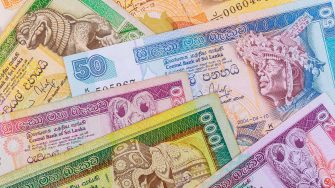Sri Lanka Roundtable - Pathways to Economic Recovery
17 October 2023
17 October 2023

This roundtable was the first in a series of interactions supported by the University of New South Wales Institute for Global Development, bringing together practitioners committed to an open dialogue on innovative pathways to economic recovery in Sri Lanka.
On Tuesday October 17th 2023, the UNSW Institute for Global Development held a roundtable to discuss Pathways to Economic Recovery in Sri Lanka. Welcoming remarks were provided by the High Commissioner for Sri Lanka, HE Mrs Chitranganee Wagiswara, opens in a new window.
Open discussion was preceded by short presentations from our speakers:
The roundtable concluded with comments that UNSW remains committed to convening similar conversations on topics chosen in consultation with key stakeholders in Sri Lanka.
A crisis is often an opportunity for much-needed and overdue reform. Since the height of its debt crisis in 2021, the government of Sri Lanka has made considerable progress in taming inflation, stabilizing the exchange rate, and eliminating the long queues for necessities. At the same time, gross domestic product (GDP) contracted by 7.8 percent in 2022 and a further 3.2 percent in 2023.
The roundtable discussion centred around the question of how Sri Lanka will navigate between the macroeconomic requirement for fiscal consolidation and the need to respond to deepening poverty. National elections are due in 2024, constraining the appetite of the political elite to undertake unpopular governance reforms.
Discussions during the roundtable demonstrated that Sri Lankans and friends of Sri Lanka are earnestly searching for a shared understanding of the magnitude of the economic and social problems, and possible pathways to navigate out of the present crisis. Lessons from abroad have the potential to inform conversations and policy response in Sri Lanka.
Sri Lanka is facing its worst economic crisis in decades. According to World Bank estimates, inequality has increased, and the percentage of Sri Lankans living in poverty doubled in 2022 and is expected to remain above 25 percent for the next few years.
Increases in the cost of living and economic contraction are direct causes of these worsening conditions. However, structural challenges underpin Sri Lanka’s heightened vulnerability in the face of a global economic downturn. Over the past five years, Sri Lanka has experienced the 2019 Easter bombings, the COVID-19 pandemic, a government debt crisis, and protracted public protests. These back-to-back shocks have arguably exposed these structural challenges and highlighted dilemmas in the social contract between citizens and the state.
Concurrently, Sri Lanka possesses resilience factors that offer hope for a better future. Successive governments have invested in education and healthcare systems with remarkable quality-of-life outcomes comparable to other middle-income countries. The island state also has a dynamic civil society that maintains active links to an engaged diaspora.